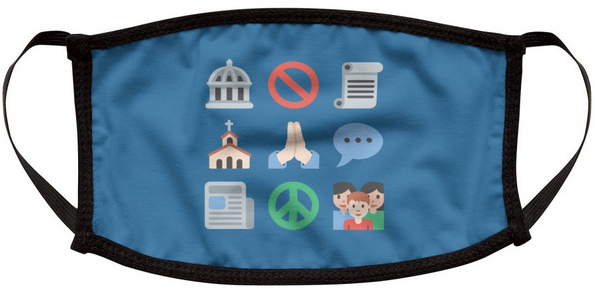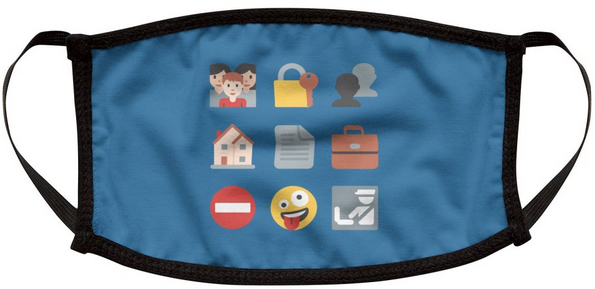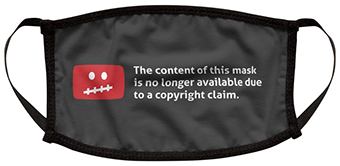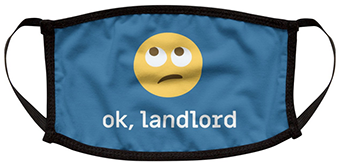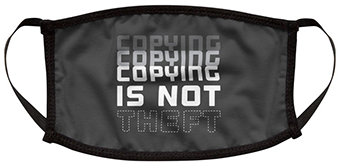from the content-moderation-at-scale-is-impossible dept
Continuing our never-ending series of posts about the impossibility of content moderation at scale, let's take a look at just how impossible it is to handle misinformation in the age of COVID-19. Ben Thompson over at Stratechery has a truly wonderful post highlighting this problem with regards to Twitter's disinformation policies, and how things break down when the "misinformation" is coming form official sources. We noted this, to some extent, the other day when we called out Houston Police Chief Art Acevedo for saying that he was seeking to have anyone who posted false information online about COVID-19 prosecuted. During the press conference, he said to only listen to "your elected officials, or to your appointed officials." But, as we noted, our elected officials and their appointees aren't always right.
As Thompson points out, Twitter also took the seemingly reasonable position that in an effort to stop (widespread) COVID-19 misinformation, it would start taking down content that disagreed with official government statements:
Broadening our definition of harm to address content that goes directly against guidance from authoritative sources of global and local public health information. Rather than reports, we will enforce this in close coordination with trusted partners, including public health authorities and governments, and continue to use and consult with information from those sources when reviewing content.
But... what if that official information was bad? Ben points out that the World Health Organization (WHO), the US CDC, and the US Surgeon General all provided bad information to the public regarding the wearing of masks to help slow the spread of COVID-19.
But, as Zeynep Tufecki wrote in an excellent NY Times article a few weeks ago, however well-intentioned these claims were, they not only were wrong, but they backfired. The message was spread this way, in part, to try to stop the hoarding of masks that were absolutely necessary for medical professionals. The supply of these were limited and because our government seemed unwilling to properly prepare for a pandemic, we were caught short. But telling people that the masks don't work was wrong and a mistake.
It is of course true that masks don’t work perfectly, that they don’t replace hand-washing and social distancing, and that they work better if they fit properly. And of course, surgical masks (the disposable type that surgeons wear) don’t filter out small viral particles the way medical-grade respirator masks rated N95 and above do. However, even surgical masks protect a bit more than not wearing masks at all. We know from flu research that mask-wearing can help decrease transmission rates along with frequent hand-washing and social-distancing. Now that we are facing a respirator mask shortage, the federal Centers for Disease Control and Prevention is recommending that surgical masks are “an acceptable alternative” for health care workers — again, obviously because some protection, even if imperfect, is better than none. In the face of this, publicly presenting an absolute answer — “You don’t need them” — for something that requires a qualified response just makes people trust authorities even less.
Fourth, the W.H.O. and the C.D.C. told the public to wear masks if they were sick. However, there is increasing evidence of asymptomatic transmission, especially through younger people who have milder cases and don’t know they are sick but are still infectious. Since the W.H.O. and the C.D.C. do say that masks lessen the chances that infected people will infect others, then everyone should use masks. If the public is told that only the sick people are to wear masks, then those who do wear them will be stigmatized and people may well avoid wearing them if it screams “I’m sick.” Further, it’s very difficult to be tested for Covid-19 in the United States. How are people supposed to know for sure when to mask up?
Indeed, there is very strong scientific evidence that masks -- even homemade ones -- do quite a lot to help slow the spread of COVID-19 -- mostly in protecting non-infected wearers and protecting them from getting sick. In fact, the evidence seems to suggest that masks warn by those who are already sick from COVID-19 don't actually help that much. This is from a 2008 study of the impact of masks on respiratory infections:
So, now, how do you deal with this as a content moderator? Here, the government is clearly saying that you shouldn't wear masks unless you are symptomatic. But actual evidence suggests that's a bad idea, and that the government actually pushed out misinformation in an attempt to cover up its own failure to have a proper supply of masks ready to go -- and then to prevent hoarding of what was out there. While the strategy to prevent hoarding may be well-intentioned, the fact that the health claims were misleading and potentially harmful is a concern.
So, should Twitter be blocking posts telling people to buy or wear masks? Or is that "harmful"? It's difficult to say.
There are, indeed, similar challenges around potential treatments for COVID-19. For example, over the past few weeks there has been tremendous controversy about a variation of chloroquine, which is mostly known as an anti-malarial drug that is useful in treating conditions like lupus. There have been a few small studies that have suggested that chloraquine, combined with some other drugs, might help. Maybe. But there are lots of questions about those studies, and there's little solid evidence to back it up. Yet, it might actually help. After the President spoke about chloraquine in a manner that was not yet supported by science, many of his supporters have been flooding the internet and airwaves with exaggerated claims about it and its possible effectiveness. Again, what's important here is that it might be effective, and the FDA has now approved it for emergency use to treat COVID-19 as more tests are ongoing.
But how do you moderate tweets about it? How do you distinguish accurate discussions of what the studies currently say with those pushing it as a miracle drug? I've seen some serious discussions analyzing the effectiveness of chloraquine that appear promising -- but all of the tests so far are small and limited, and it would be a mistake to read too much into them. But how do you then hand that off to a moderator and get them to understand the difference between careful, thoughtful, nuanced discussions about it... and whatever nonsense the President himself is spewing? Again, the President is an "authoritative source" in most contexts...
Even more complex: I'm guessing that if more evidence does eventually come out that chloraquine is effective (again, I'm making no statement one way or the other as to whether or not that will happen as I honestly have no idea), you can bet that those who had their nonsense tweets about it "being proven 100% effective" (as I've seen on Twitter a few times) will insist that Twitter was "censoring the truth" in some effort to probably "undermine the President" or some such nonsense. But, of course, that's not accurate at all. Determining what is and what is not "misinformation" in the midst of a pandemic when no one really knows fully what's good information and what is not puts content moderators in an impossible position.
When the WHO, the CDC, the Surgeon General and the President might all be pushing misleading information, how are we expecting social media content moderators to magically get it all right?
Filed Under: cdc, chloroquine, content moderation, content moderation at scale, covid-19, face masks, masnick's impossibility theorem, misinformation, surgeon general, who

